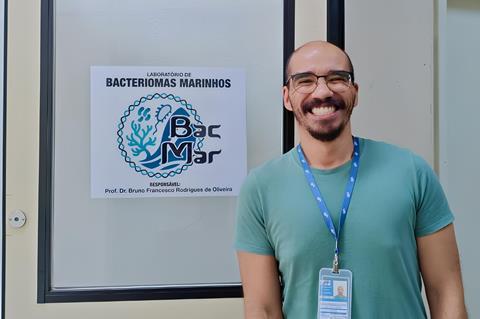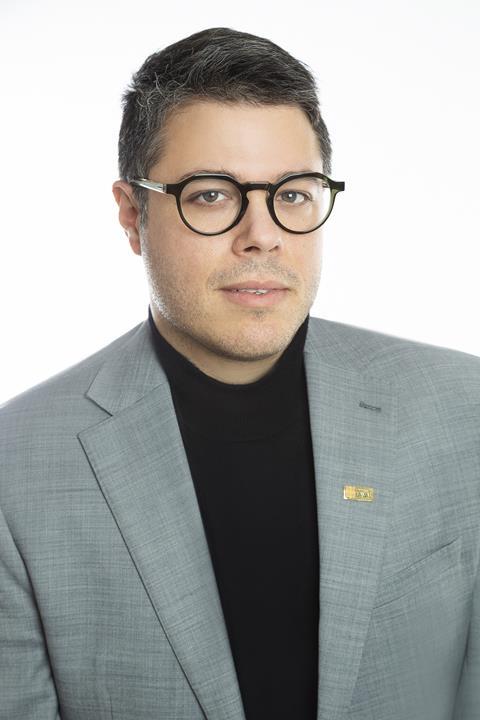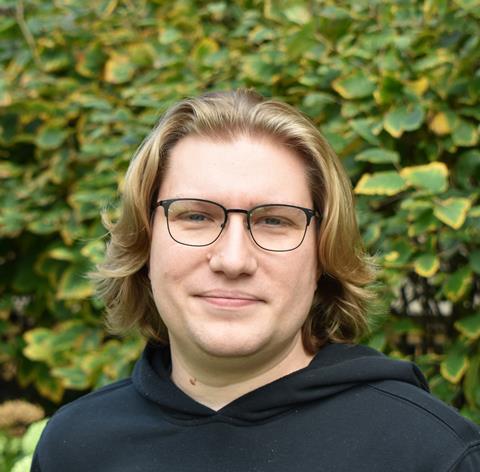Bruno Francesco Rodrigues de Oliveira, a founding member of the Pride in Microbiology (PiM) Network, reveals how it has developed since it was launched three years ago - and what needs to happen next.
A survey published earlier in 2023 indicated that LGBTQIA+ people are a growing part of UK society, with just over 10% of 16- to 24-year-olds identifying as LGBTQIA+ in 2023, a sharp rise when compared to the 4.4% data from five years before (Office of National Statistics, 2023).

The recent UK Supreme Court ruling on the legal definition of woman based on “biological sex” and major delays on gender-affirming healthcare and multiple barriers to accessing sexual health services illustrate how trans and gender diverse lives are being increasingly threatened all around the country, with no clear signs of immediate change. Unfortunately, this is not isolated to the UK and backlashes on queer and trans rights are spreading across the world, and the scenario is looming and discouraging for all generations of LGBTQIA+ people.
Three years ago, amidst a growing concern about the higher representation of LGBTQIA+ members in STEMM fields that started in the early 2010s, we launched the Pride in Microbiology (PiM) Network. Research clearly shows that queer and trans scientists feel isolated, poorly recognised and suffer often from prejudice in a multiplicity of forms, ultimately leading them to abandon any prospect of an academic career (Cech & Waidzunas, 2021).
Making connections
In the context of an editorial published by Nature Microbiology (Amplifying diverse voices in Microbiology, 2023), our network was established on the premise that it would work as a mentorship and community-building initiative to connect LGBTQIA+ members in microbial sciences, amplifying their voices and giving them a safer and welcoming environment to feel truly represented (Getz et al., 2023). Counting initially with just three of its cofounders and their willingness to make some actual change, our network expanded in a collaborative approach, gathering strength and attending to its primary goals, as delineated in its launch.

First and foremost, we wanted to bring people together through social media and other virtual channels in an easygoing and informal manner, facilitating discussion between our members. From the very beginning, we have launched an online community through Discord and an email list to maintain a constant and effective line of communication.
Additionally, we frequently hosted Virtual Coffee Hours during these last two years: these coffee hours were an opportunity for members to directly share their experiences and background stories, including professional challenges and other reflections on their lives as LGBTQIA+ people in the countries they were based in. It was particularly rewarding to see how people enjoyed these one-hour moments, feeling more relaxed and even establishing new scientific collaborations.
Journal club approach
In this vein, we aimed to create a platform for LGBTQIA+ microbiologists to also enhance their visibility as researchers. Taking on the success of the Journal Club initiative established between the Black Microbiologists Association (BMA) and Nature Microbiology, the PiM Network was also invited by the journal and became another partner in this program.

Basically, short comment pieces on recently published impactful articles are authored by LGBTQIA+ early-career researchers selected from a pool of interested network members by the journal’s editorial staff. These comment articles are non-primary publications and, therefore, free to publish, which turns into reality for scientists from low- to low-middle-income countries the unique opportunity to get their articles in a high-impact journal.
Since March 2024, three Journal Clubs’ comment articles have been published by PiM network members as part of this initiative, and we are currently planning to broaden it as part of our goal of increasing the visibility of queer and trans microbiologists.
Space to share
As part of our aim to support the professional development of our members, we hosted two LGBTQIA+ STEM Day Symposia in November 2023 and 2024. These virtual events were crucial not only to make our network widely known but also to get members together for a wider discussion on the main challenges faced by them in the working environment.
Most importantly, we planned to turn the symposium into a platform to spotlight the research of LGBTQIA+ microbiologists, creating an additional space in which they can share their scientific accomplishments and initiate new collaborations. This is extremely important, considering the underrepresentation of our community in academic events, highlighting their voices and contributions, providing an opportunity for professional development.
READ MORE: The Pride in Microbiology Network: empowering 2SLGBTQIA+ microbiologists
More recently, we launched the PiM Connections program to boost mentorship and foster collaborative and supportive relationships among researchers in our network. Participants are encouraged to join groups based on their geographical location and research interests, with the latter carefully curated, taking into account research descriptions and group sign-ups.
Our ultimate goal is to make these local connections the cornerstone of a more solid network, once members can potentially meet up in person, directly communicate with each other for peer support and start collaborative projects. Members interested in enhancing technical skills can also benefit from the program, as they can ask for help from peers with experience and background knowledge on a particular technique or methodological approach.
Early stages
We are aware that our efforts are still in the early stages and there is much room for improvement, particularly considering the current political environment, when it seems that all the progress during the last decades is vanishing.
Our dedication to structuring a network that truly brings justice and a sense of belonging to queer and trans microbiologists is rooted in our pride to be part of the LGBTQIA+ community. The PiM network wants to be diverse, representative and widespread, encompassing members all over the world and at different career stages.
Our goals will be expanded, and we will do our best to nurture a network to raise our voices and inspire younger generations of LGBTQIA+ scientists also willing to pursue a career in microbiology.







No comments yet